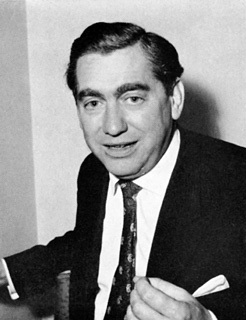
Anthony John Hancock was an English comedian and actor.
A British sitcom or a Britcom is a situational comedy programme produced for British television.
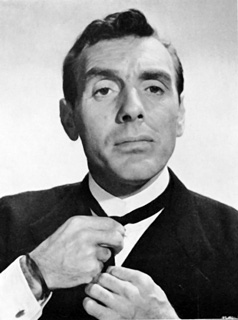
Eric Sykes was an English radio, stage, television and film writer, comedian, actor and director whose performing career spanned more than 50 years. He frequently wrote for and performed with many other leading comedy performers and writers of the period, including Tony Hancock, Spike Milligan, Tommy Cooper, Peter Sellers, John Antrobus and Johnny Speight. Sykes first came to prominence through his many radio credits as a writer and actor in the 1950s, which include collaboration on some scripts for The Goon Show. He became a TV star in his own right in the early 1960s when he appeared with Hattie Jacques in several popular BBC comedy television series.

Dame June Rosemary Whitfield was an English radio, television and film actress.

Steptoe and Son is a British sitcom written by Ray Galton and Alan Simpson about a father-and-son rag-and-bone business in 26a Oil Drum Lane, a fictional street in Shepherd's Bush, London. Four series were broadcast by the BBC in black and white from 1962 to 1965, followed by a second run from 1970 to 1974 in colour. The lead roles were played by Wilfrid Brambell and Harry H. Corbett. The theme tune, "Old Ned", was composed by Ron Grainer. The series was voted 15th in a 2004 poll by the BBC to find Britain's Best Sitcom. It was remade in the United States as Sanford and Son, in Sweden as Albert & Herbert, in the Netherlands as Stiefbeen en zoon, in Portugal as Camilo & Filho, and in South Africa as Snetherswaite and Son. Two film adaptations of the series were released in cinemas, Steptoe and Son (1972) and Steptoe and Son Ride Again (1973).

Galton and Simpson were a British comedy scriptwriting duo, who wrote for radio, television and film, consisting of Ray Galton OBE and Alan Simpson OBE. They are best known for their work with comedian Tony Hancock on radio and television between 1954 and 1961 and their long-running television situation comedy, Steptoe and Son, eight series of which were aired between 1962 and 1974, they had an association lasting 60 years.

Raymond Percy Galton was an English radio and television scriptwriter, best known for the Galton and Simpson comedy writing partnership with Alan Simpson. Together they devised and wrote 1950s and 60s BBC sitcoms including Hancock's Half Hour (1954–1961), the first two series of Comedy Playhouse (1961–1963), and Steptoe and Son (1962–1974).
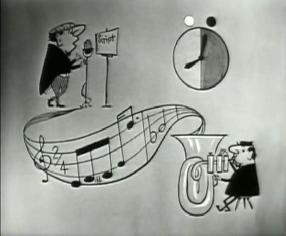
Hancock's Half Hour was a BBC radio comedy, and later television comedy series, broadcast from 1954 to 1961 and written by Ray Galton and Alan Simpson. The series starred Tony Hancock, with Sidney James; the radio version also co-starred, at various times, Moira Lister, Andrée Melly, Hattie Jacques, Bill Kerr and Kenneth Williams. The final television series, renamed simply Hancock, starred Hancock alone.
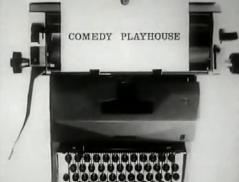
Comedy Playhouse is a long-running British anthology series of one-off unrelated sitcoms that aired for 128 episodes from 1961 to 1975. Many episodes later graduated to their own series, including Steptoe and Son, Meet the Wife, Till Death Us Do Part, All Gas and Gaiters, Up Pompeii!, Not in Front of the Children, Me Mammy, That's Your Funeral, The Liver Birds, Are You Being Served? and particularly Last of the Summer Wine, which is the world's longest running sitcom, having run from January 1973 to August 2010. In all, 27 sitcoms started from a pilot in the Comedy Playhouse strand.

Patrick Cargill was an English actor remembered for his lead role in the British television sitcom Father, Dear Father.
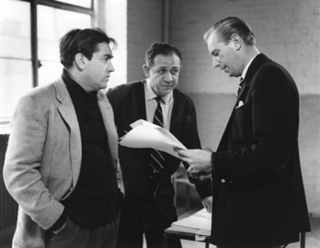
Wilfred Duncan Wood was a British comedy producer, director and writer, who has been described as "the founding father of the British TV sitcom".

Alan Francis Simpson was an English scriptwriter, best known for the Galton and Simpson comedy writing partnership with Ray Galton. Together they devised and wrote the BBC sitcom Hancock's Half Hour (1954–1961), the first two series of Comedy Playhouse (1961–1963), and Steptoe and Son (1962–1974).
David Anderson is a Scottish actor, playwright and jazz musician based in Glasgow.
The Tony Hancock Show is a black-and-white British sketch show starring Tony Hancock and was broadcast on ITV by the franchise contractor Associated-Rediffusion for two series in 1956 and 1957, either side of the first television series of Hancock's Half Hour. It was written by Eric Sykes, Larry Stephens, John Jose and Ray Galton and Alan Simpson. All the episodes were broadcast live.
"Twelve Angry Men" is an episode of the BBC television situation comedy programme Hancock's Half Hour, starring Tony Hancock and featuring Sid James, and first broadcast on 16 October 1959. Written by Ray Galton and Alan Simpson, the title is retrospectively applied; the episodes were not originally identified separately.
"The Bowmans" is an episode of the BBC television situation comedy programme Hancock, the final BBC series featuring Tony Hancock, first broadcast on 2 June 1961. It was written by Ray Galton and Alan Simpson. The title is a retronym; the episodes were not originally identified individually.
Thomas James Harman Sloan was a British television executive. He was the BBC's Head of Light Entertainment in the 1960s.

William Cecil James Ottaway was a British film, television and stage actor whose career spanned seven decades.
"The Radio Ham" is an episode from the comedy series Hancock, the final BBC series featuring British comedian Tony Hancock. First transmitted on 9 June 1961, the show was written by Ray Galton and Alan Simpson, and was produced by Duncan Wood. The title is a retronym.











